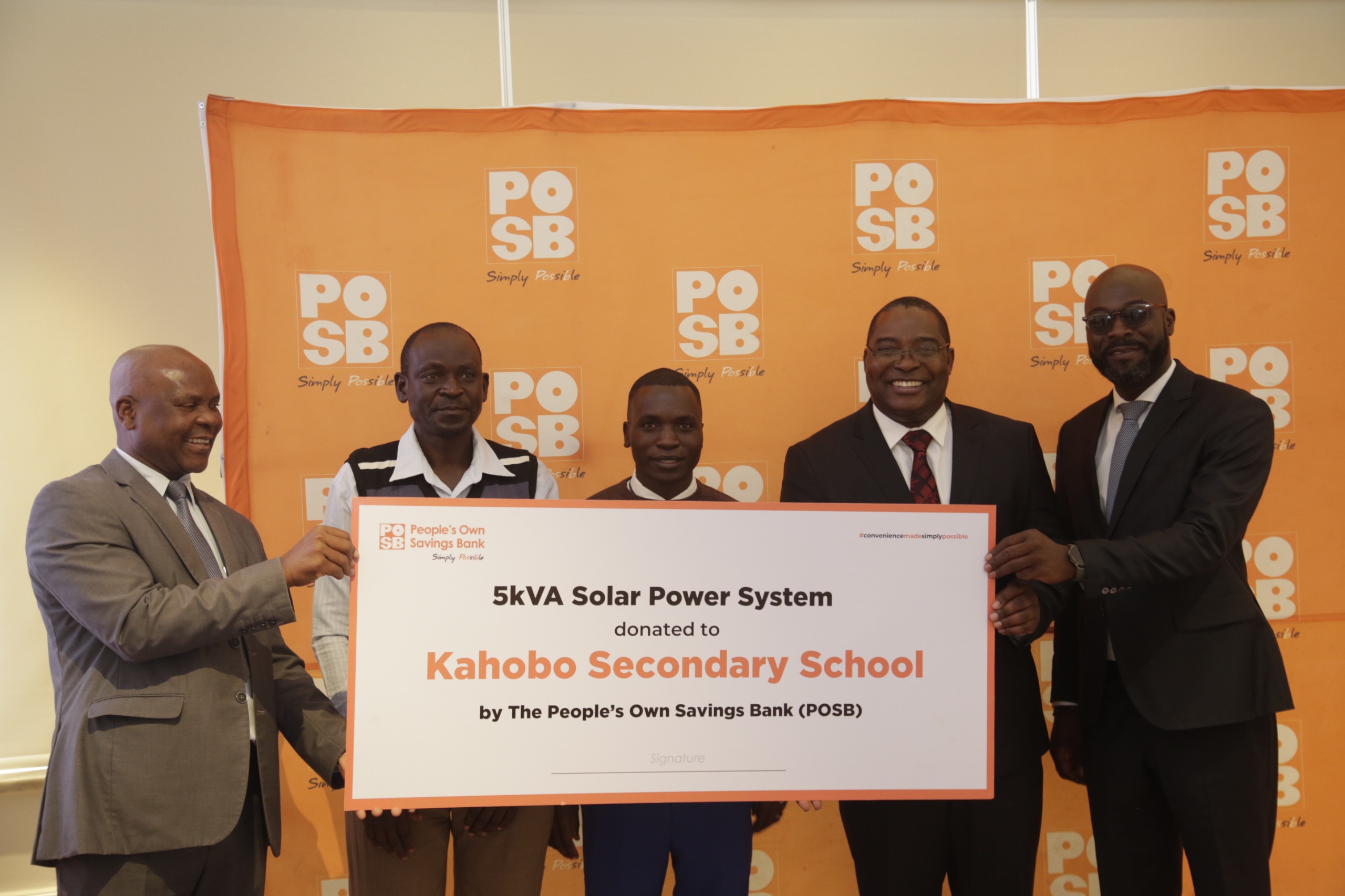FinTech
POSB Unveils USD8.7 Million Solar and Starlink Facility For Schools
The People’s Own Savings Bank (POSB) has unveiled a USD8.7 million Solar and Starlink facility, a landmark financing programme designed to provide schools, SMEs, and households across Zimbabwe with access to reliable solar energy and high-speed internet connectivity.
The initiative, officially launched in Harare, marks another milestone in POSB’s 120-year history of promoting financial inclusion and national development.
POSB Chief Executive Officer, Mr Garainashe Changunda, said the facility is part of the Bank’s commitment to driving sustainable and inclusive growth through innovative financial solutions.
“This launch represents a transformative milestone in our journey to empower Zimbabwe’s education sector. As we celebrate 120 years of service, we remain committed to promoting inclusive, sustainable development that improves the livelihoods of our people,” he said. “Our objective is to bridge the digital connectivity and energy access gaps that persist between rural and urban schools, ensuring equitable access to modern learning environments for all.”
Guest of Honour, the Minister of Primary and Secondary Education, Honourable Torerayi Moyo (MP), commended POSB for complementing the Government’s education transformation and digital inclusion agenda.
“This remarkable initiative embodies the spirit of collaboration and innovation in our education sector, directly addressing our nation’s priority of education for all,” said Minister Moyo. “By investing in solar energy and technology, POSB is helping ensure that every child—no matter their location—has access to quality, connected learning environments. This visionary intervention supports our drive towards a sustainable, inclusive, and modernised education system in line with Vision 2030.”
The Minister added that the Solar and Starlink Facility aligns with the Government’s ongoing Presidential Computerisation and Solarisation Programmes, which aim to power schools and enhance digital connectivity nationwide.
According to reports, more than 60 percent of rural schools have no access to a stable power supply, and over 70 percent lack internet connectivity.
“These statistics represent lost potential and widening inequality in access to knowledge, challenges that the Solar and Starlink facility directly addresses by providing flexible, affordable financing for energy and connectivity,” Mr Changunda added.
Under the programme, POSB has allocated USD8.7 million over three years to support schools, educators, SMEs, and households in installing solar energy systems and Starlink internet services.
The Bank is targeting to power at least 400 schools, 2,700 households, and 400 small and medium enterprises across the country by 2027.
To meet the diverse energy requirements of customers, the Bank is offering
customisable power solutions ranging from 1kVA to 20kVA, giving every customer the flexibility to choose a system that best suits their energy consumption needs.
The initiative aligns with the Bank’s three-year strategic transformation plan, which, among other objectives, seeks to reposition POSB as a development-focused institution that drives inclusive national growth and digital transformation with education at the
heart of the Bank’s operations.
The facility is anchored on three strategic pillars:
●Clean Energy Access – Expanding renewable energy for schools and small
businesses especially in rural and peri-urban areas.
●Sustainable Finance – Providing affordable funding that removes collateral
barriers and promotes equitable access.
●Digital Connectivity – Enabling schools to connect to high-speed, reliable
Starlink internet and adopt e-learning platforms and digital education tools in line with the Education 5.0 policy.
The facility is being rolled out in partnership with Transerv, Global Solar, and TelOne.
POSB provides the financing, while Transerv and Global Solar install the solar kits, and TelOne manages the Starlink installations.
Funds of up to USD10,000 are available without collateral, with approvals processed within 48 hours and installations completed within seven days. Repayments can be spread over 24 months, aligned to school income cycles.
The POSB Solar and Starlink initiative supports Zimbabwe’s Vision 2030, the National Renewable Energy Policy, and international commitments under the Paris Agreement and the United Nations Sustainable Development Goals (SDGs), particularly SDG 7 (Affordable and Clean Energy) and SDG 13 (Climate Action).
POSB is also working with Global Solar to register the project for carbon credits, a move expected to attract international climate finance and expand renewable energy access nationwide. The Bank has already held a stakeholder consultative meeting as part of the carbon credit registration process.
To underscore its commitment to promoting access to clean energy and supporting education in underserved communities, POSB extended a USD20,000 donation towards the installation of free 5KVA solar kits for seven schools that have no electricity as part of its Corporate Social Responsibility (CSR) programme. The beneficiary schools include Kamwa, Masemo, and Kahobo Secondary Schools in Gokwe North, Midlands Province. Chipinda Secondary School and Birirano Primary School in Mutema–Musikavanhu, Chipinge, Manicaland Province; Avoca Primary School in Bindura, Mashonaland Central Province; and Siganda Primary School in Bubi, Matabeleland North Province.
“As we mark our 120th anniversary, POSB is redefining its role, not only as a custodian
of savings but also as a catalyst for national transformation,” Mr Changunda said. “The Solar and Starlink facility is our declaration that POSB stands ready to power Zimbabwe’s sustainable, inclusive, and technology-driven education sector.”
POSB has called on schools to take advantage of the facility and join in building a green, connected, and inclusive Zimbabwe.
Pardon has been a technology enthusiast his entire life and has spent the better part of last decades in information technology and security, and he writes with an aim to remove some of the "mysticism" from the cyber world. He’s the Editor at Techunzipped. Away from the keyboard, you're likely to find him playing with the latest gadgets or the latest Game.
